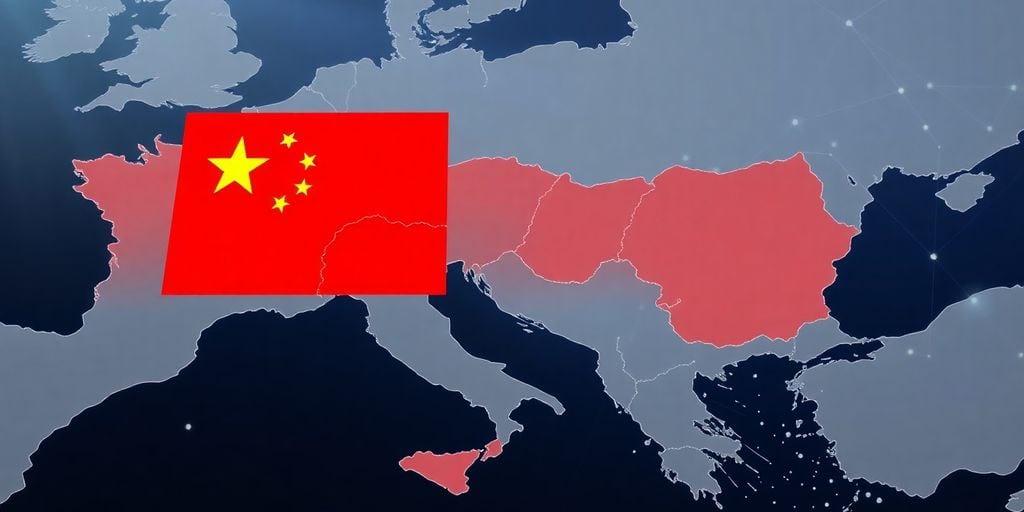A recent panel discussion highlighted the growing influence of China in the Western Balkans, particularly through its Digital Silk Road initiative. Experts convened to explore the complex interplay of technological investment, economic benefits, and the associated geopolitical and security risks for the region. The discussion also delved into the roles of the EU and the US in supporting secure digital development and the implications for the Western Balkan countries’ aspirations to join the EU.
China’s Digital Silk Road: Opportunities and Risks
China’s Belt and Road Initiative, launched in 2015, includes the Digital Silk Road (DSR), which aims to bolster digital infrastructure, internet connectivity, and trade. This initiative, benefiting Chinese tech giants like Huawei, offers potential technological and economic advantages to Western Balkan nations. However, it also presents significant risks, including concerns about surveillance, data privacy, and foreign influence.
The EU’s Slow Response and Western Balkan Aspirations
The European Union’s delayed accession process for Western Balkan countries has created a vacuum that China has been actively filling. While China provides economic assistance and infrastructure investment, such as the Bar-Boljare Highway in Montenegro, these projects have sometimes been costly and inefficient. The EU’s own Digital Agenda for the Western Balkans and the US’s Clean Network Initiative have had limited success in countering China’s growing footprint.
Navigating Geopolitical Challenges
Western Balkan countries often view China as an additional funding source rather than a replacement for the EU. China, in turn, sees the region as a crucial link in its Belt and Road Initiative, securing access to raw materials and establishing multiple entry points into Europe, independent of established EU members like Hungary.
- Debt Concerns: While Western Balkan countries owe most of their debt to the EU, the case of Montenegro’s loan for the Bar-Boljare Highway highlights potential future risks, even if past issues were resolved with Western assistance.
- Contractual Leverage: Contracts with China often include clauses for arbitration in Chinese courts and termination for vague political reasons, providing Beijing with potential leverage.
- EU’s Strategic Imperative: The EU is increasingly recognizing that economic security extends beyond its borders. Accelerating accession talks with the Western Balkans and encouraging stricter foreign investment screening rules are seen as crucial steps to counter China’s influence.
Key Takeaways
- China’s Digital Silk Road offers economic benefits but poses significant security and sovereignty risks to the Western Balkans.
- The EU’s slow enlargement process has inadvertently allowed China to increase its influence in the region.
- Western Balkan nations must balance Chinese investments with their long-term aspirations for EU membership.
- The EU and US need to implement more effective strategies to support secure digital development in the Western Balkans.
- Stricter investment screening mechanisms are necessary for Western Balkan countries to safeguard their digital future.
Sources
- Digital Crossroads: China’s Influence in the Western Balkans, German Marshall Fund of the United States.
- The EU should have woken up long ago to China’s growing influence in the Western Balkans, Bruegel.






